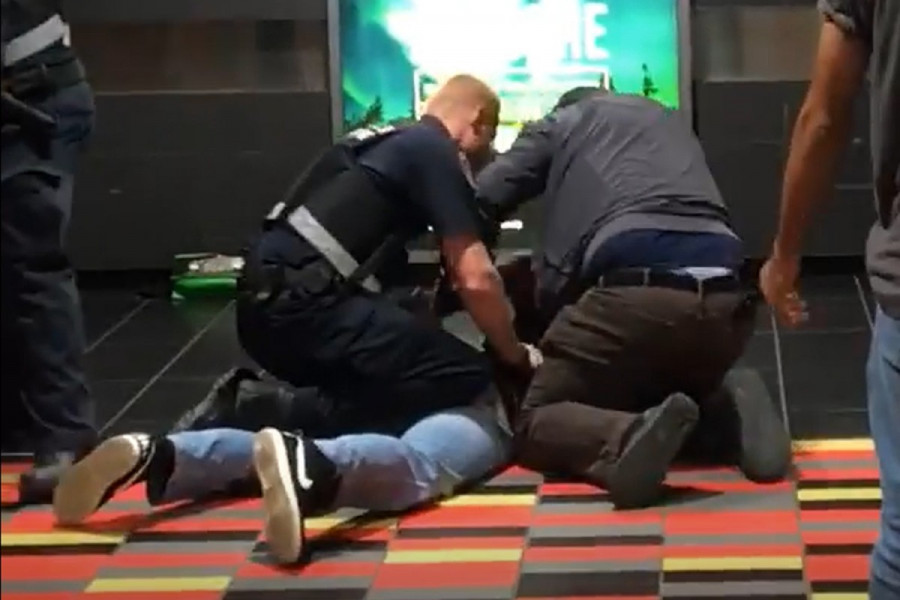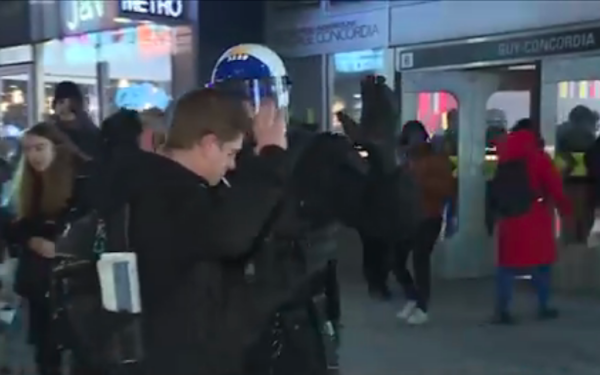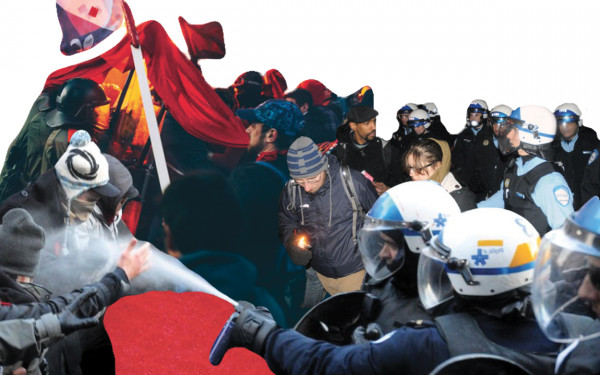The STM Inspectors Should Be Held Accountable
Recent Events Show They Need To Be Heavily Scrutinized
Over the past few weeks and months, incidents involving the Société de transport de Montréal officers have been circulating all over social media and the news.
From the beatdown of a young man at Villa-Maria, to a very rough arrest at Guy-Concordia, these officers haven’t been held accountable for their actions and this is something that needs to change immediately.
Public transportation is something I use everyday because, for me, it is the best way to travel in and out of Montreal. That being said, seeing STM inspectors in the metro is normal. Seeing them in action, making arrests or just talking to homeless people in the metro is something that I am used to.
How they’ve handled interventions is unacceptable and concerning. It’s also concerning how little the everyday happenings of STM inspectors are scrutinized. Their actions are viewed differently than those of the SPVM or the SQ, outside of when there’s a media storm around them, which quickly disappears anyway.
We often talk, rightfully so, about police when they do something wrong. What about the STM? We should be talking night and day about the brutality of several STM interventions, yet, partially due to the 24 hour news cycle, the stories seem to die too soon.
According to the STM’s website, the role of the inspector is to “enforce rules throughout our facilities.’’ They check fares, patrol, and play a prevention role amongst both passengers and employees. They also respond to emergencies and assist transit users in various situations.
When an incident happens inside the metro, they are the first people to respond, just like a security guard at a nightclub or a referee for any sporting event.
However, these inspectors have the same powers as the police; they are allowed to make arrests.
This means that they are allowed to handcuff people and send them to prison. According to the STM, these officers have a 14 week training at the École nationale de police du Québec in the city of Nicolet.
That means that these people are training with police officers and are being taught how to handle situations like the police would be handling them. The website for the École Nationale de Police du Québec says that their training lasts only 13 weeks. To become a police officer, the training lasts a bit more than 14 weeks. If the one week less of training creates this result, then this school should be reviewing its entire program.
STM officers hold the same responsibilities as police officers and they train at the same academy as future police officers; of course they should be scrutinised the same way.
Understandably, some might argue that these people are not police officers, so their leash tends to be looser, and we sometimes give them the benefit of the doubt. To that I argue: I work as a security guard when I am not at school. A popular opinion about security guards that I have heard, time and time again, is that we are security guards because we are not good enough to be police officers. Regardless, we are still held to the highest standard because so many people see us at public or private events. If we make one wrong move, it’s game over.
As a security guard, we are taught that when it comes to interactions with people or when incidents occur, we should only be using an amount of force that is less than or equal to the force needed to control the situation; verbal or physical. I would expect that police or STM officers adhere to the same principles regarding use of force.
In that case, why did the two officers decide that it was acceptable to assault the man in the Villa-Maria incident? He was already on the ground after they had chased him down, I don’t think there was a need for such force. In an article published on March 18 by the CBC, Alain Babineau, a former RCMP officer, stated that “ the level of force the inspectors used seemed disproportionate, given the situation.”
Ultimately, we need to demand better from those in positions of power; SPVM, STM inspectors, or otherwise. It is in our best interests to hold the STM officers to a higher standard.







